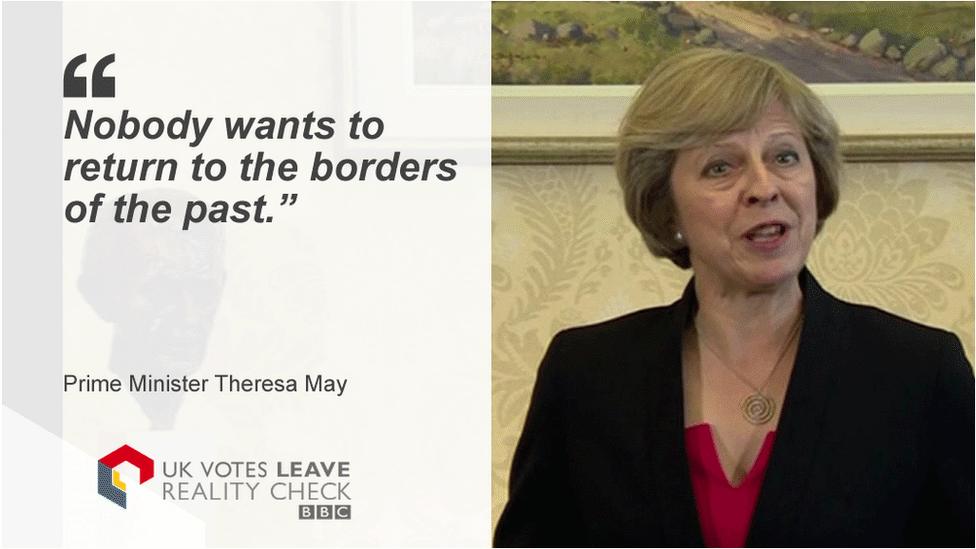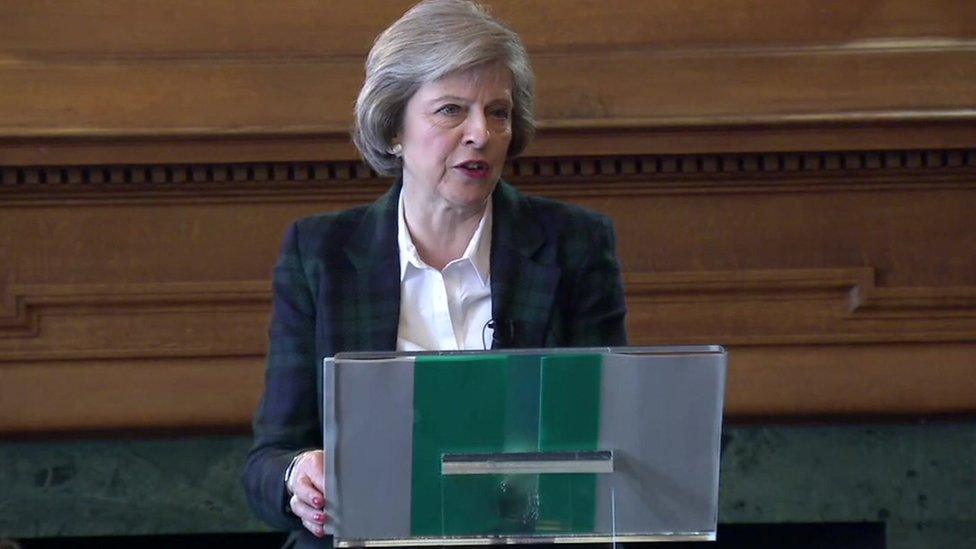Reality Check: What does Brexit mean for the Irish border?
- Published

Theresa May has visited Northern Ireland for the first time since taking over as prime minister.
As home secretary campaigning to stay in the European Union, she described it as "inconceivable" that Brexit would not lead to changes to the border arrangements between Northern Ireland and the Republic of Ireland.
It is important because once the UK leaves, it will be the only land border between the UK and the European Union.
The current arrangements significantly pre-date the formation of the EU.
The UK and Ireland entered into a Common Travel Area (CTA), external agreement in 1923. This is an informal travel arrangement that means that no passport controls are in operation for Irish and UK citizens travelling between the two countries. It's been updated a couple of times since then.
During the Troubles there were frequent road closures and checkpoints at the border and in Belfast on Monday, Prime Minister Theresa May said: "Nobody wants to return to the borders of the past."
But it is by no means a foregone conclusion that the situation can remain unchanged - the UK and Ireland joined the European Community (which later became the EU) on the same day, so the border has never been one between a member and a non-member.
Ireland is not currently part of the passport-free Schengen zone, which does mean that visitors entering Ireland from another EU country will already have had their passports checked.
Much will come down to what happens in the UK's negotiations to leave the EU, particularly whether freedom of movement continues. It will also be important whether the UK decides to remain part of the European Economic Area, although there are some customs checks even between Norway, which is an EEA member and Sweden, which is an EU member.
There has also been legal advice that any agreement between the UK and Irish Republic would have to be agreed by the whole of the EU.
Professor Dagmar Schiek, Jean Monnet chair of EU Law and Policy at Queens University Belfast, is quoted in a report by the Northern Ireland affairs committee, external as saying: "Under EU law, any future relations between the Republic of Ireland and the UK would be subject to agreement not only with the Republic of Ireland, but with the whole of the EU".
One suggested solution is that the border between Northern Ireland and the Republic of Ireland should remain open, but there would then be a border between the island of Ireland and the rest of the UK, which would have the advantage of not being a land border.
But First Minister Arlene Foster said she had told Theresa May: "There must be no internal borders within the United Kingdom, and I was very clear with her on that and she responded positively to that."



- Published21 June 2016

- Published7 June 2016

- Published24 June 2016

- Published22 February 2016
